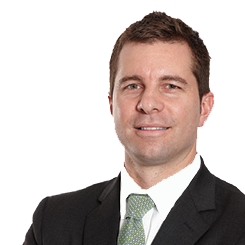
As ETFs continue to grow, people have more choices to meet their investment objectives, and gain insight into the latest innovations and thinking in the ETF market.
Buying individual U.S. stocks or mutual funds isn’t the only way for investors to be active in U.S. markets. Daniel Stanley, Director, BMO ETFs, explains the advantages of purchasing a Canadian ETF.
How important is it to have U.S. holdings?
Stanley: Everyone’s portfolio should have exposure to the U.S. economy, the most vibrant in the world. One way is to buy an S&P 500 Index ETF. You can take a tactical position if you’re bullish, and because ETFs are low cost, you can also hold them as a long-term strategic position.
What choices are there?
Stanley: You can implement your asset allocation by using a broad S&P 500 Index ETF. Or, if you have a strong opinion about what investment styles will do well, you can use a smart beta ETF to get your exposure. For instance, you can buy one with exposure only to low-volatility stocks or only to value stocks.
Are investors exposed to currency risk?
Stanley: When you buy a U.S. stock, you have to convert Canadian to U.S. dollars. This creates additional cost and risk. If the U.S. dollar goes down, gains in the stock could be lost, or losses could be exacerbated, when the weaker U.S. dollar is converted back to Canadian dollars. That means, you can buy BMO S&P 500 Index ETF denominated in Canadian dollars, saving you the cost of doing a currency conversion. You then have further choice: to hedge the currency or not.
Do these ETFs involve U.S. taxes?
Stanley: Our products are Canadian-domiciled trusts, meaning that they don’t fall under the umbrella of U.S. tax authorities.
What else are investors saying?
Stanley: It’s complicated and costly to do your own research, or pay an active portfolio manager to try to pick winners in any given year in the U.S. stock market. By buying a passive ETF, you get exposure to the market without the complexity and cost.
Look for timely ETF advice from BMO Asset Management in the April, May, September and October issues of Investment Executive and Finance et investissement.
Daniel Stanley,
Director, BMO ETFs
Commissions, management fees and expenses all may be associated with investments in exchange traded funds. Please read the ETF Facts or prospectus before investing. Exchange traded funds are not guaranteed, their values change frequently and past performance may not be repeated.
For a summary of the risks of an investment in the BMO ETFs, please see the specific risks set out in the prospectus. BMO ETFs and ETF series trade like stocks, fluctuate in market value and may trade at a discount to their net asset value, which may increase the risk of loss. Distributions are not guaranteed and are subject to change and/or elimination.
BMO ETFs are managed by BMO Asset Management Inc., which is an investment fund manager and a portfolio manager, and a separate legal entity from Bank of Montreal.
®/™Registered trade-marks/trade-mark of Bank of Montreal, used under licence.

